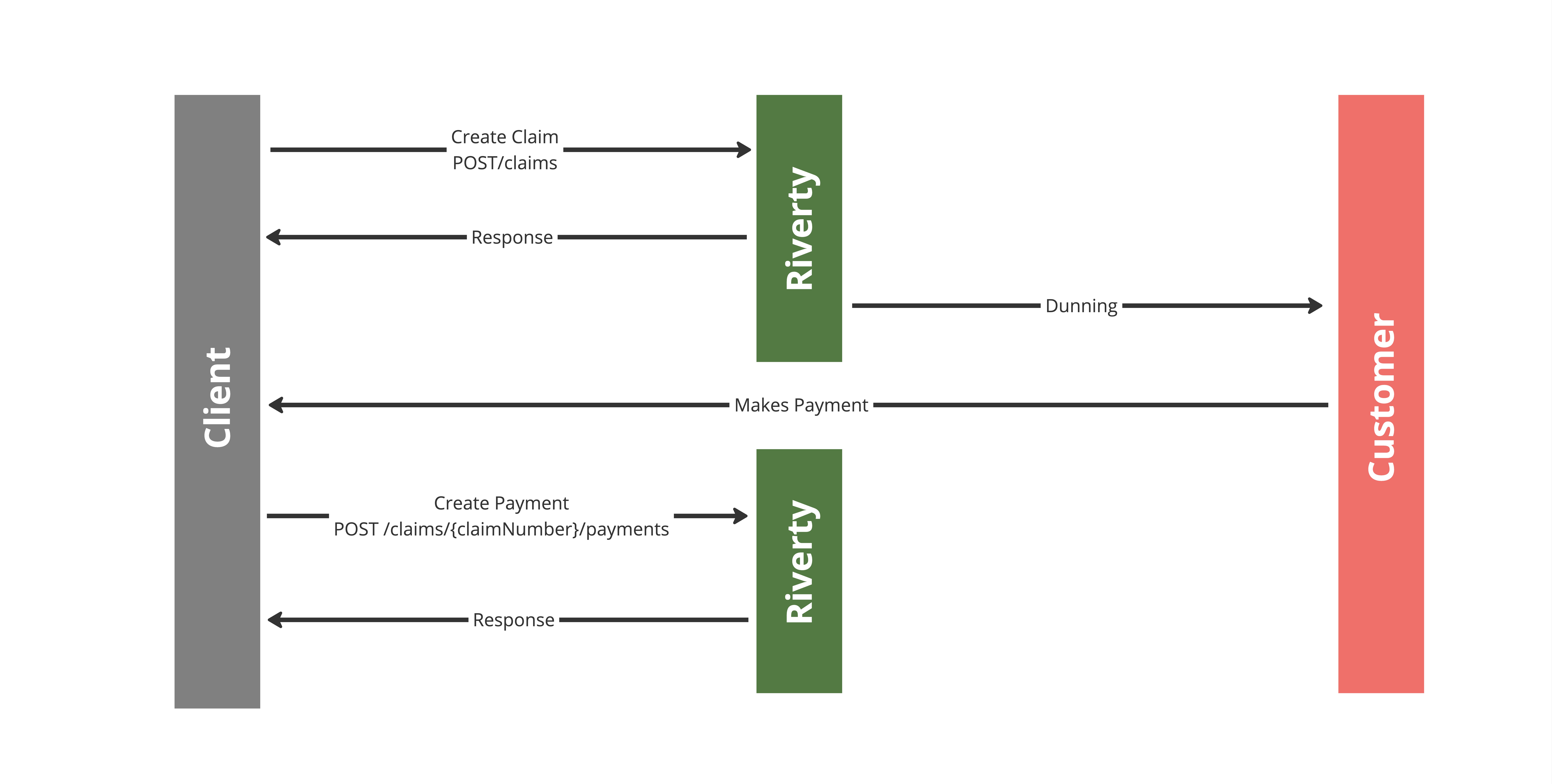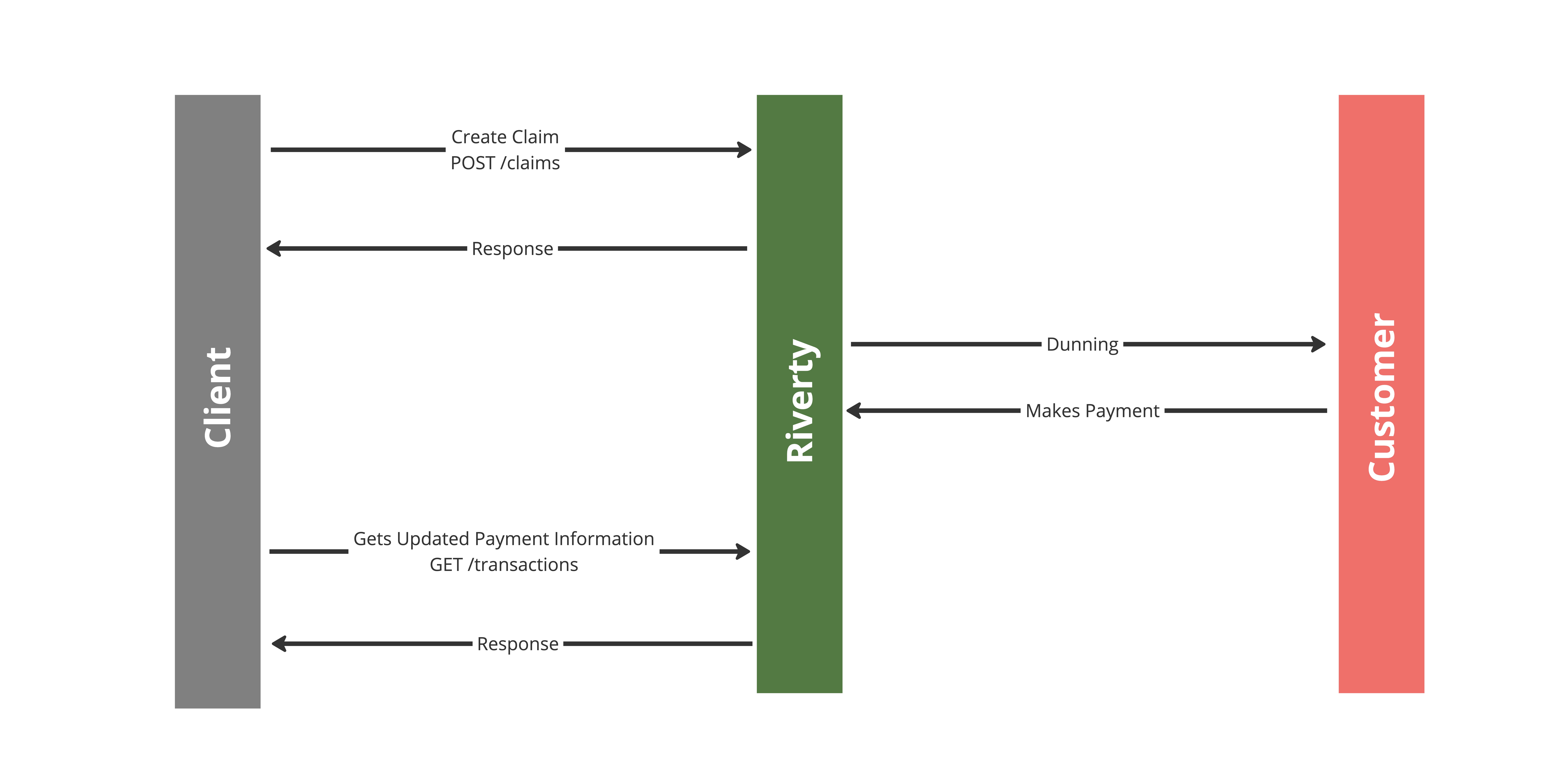Sequence Diagram
The sequence diagrams below provide the payment processes that occur after a dunning letter is sent to the customer (debtor). These diagrams clarify the flow of actions (basic API calls), ensuring all parties understand their roles and responsibilities in the debt collection process.
There are two possible payment scenarios:
Payment to Client
In this scenario, the customer may opt to pay the outstanding amount directly to the client. The client is then required to call the create a payment endpoint to accurately update the claim with the received payment details. This step ensures that all records are current and accurately reflect the status of the debt.
To learn more, you can visit our documentation on creating a payment for detailed information.

Payment to Riverty
Alternatively, the customer can make payment directly to Riverty. When this occurs, the client can use the "get all transactions within a period of time" endpoint to retrieve the payment information related to a specific claim.

Please Note: Refer to our documentation on creating a payment to learn more about tracking and retrieving payment information.